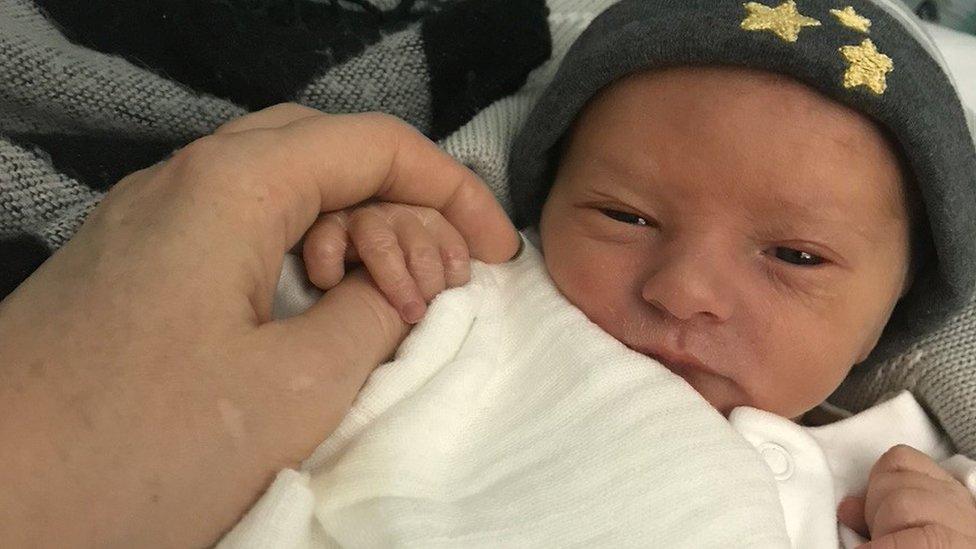NHS to publicly apologise for maternity failings in Nottingham
- Published
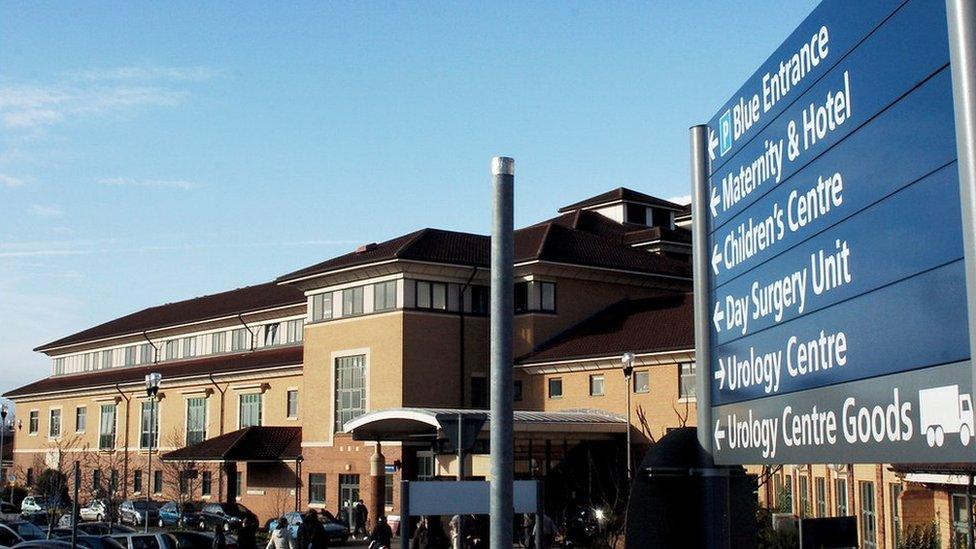
The review is looking into dozens of cases at the City and Queen's Medical Centre hospitals
The head of an NHS trust will publicly apologise to people who experienced failings in maternity care.
Chairman Nick Carver will apologise on behalf of Nottingham University Hospitals (NUH) Trust at its annual meeting on 10 July.
The trust's maternity services are currently being reviewed by midwife and healthcare expert Donna Ockenden.
Families requested an apology and called for changes to the review process at a meeting on Tuesday.
The meeting was chaired by Ms Ockenden, who previously led an inquiry into the UK's biggest maternity scandal at Shrewsbury and Telford NHS Trust.
Her Nottingham review comes after dozens of baby deaths and injuries at the Queen's Medical Centre and City Hospital.
The meeting was attended by Mr Carver and trust chief executive Anthony May.
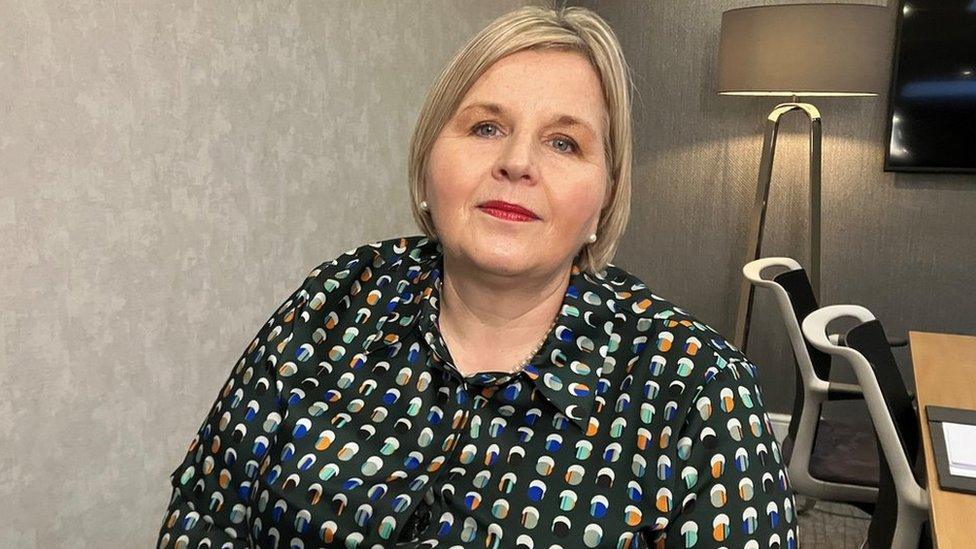
Donna Ockenden said there was not "anywhere near a representative sample" of families
"I continue to learn a great deal from meeting women and their families and last night was an important opportunity for me to say sorry for any harm and distress caused by failings in our services," Mr May said.
At the meeting, families called for changes to the ongoing review process.
They asked the Department of Health and Social Care, NHS England, Mr May and Mr Carver to agree to change the review from "opt-in" to "opt-out".
So far, 1,266 families have contacted the review team themselves directly and to date 674 of these have given consent to join it.
'More work to do'
Ms Ockenden's previous review in Shrewsbury and Telford, which used the "opt-out" approach, included more than 95% of affected families.
The Nottingham trust wrote to 1,377 families at the end of November and the end of January.
The letters went to families who had experienced stillbirth, neonatal deaths, brain damage to the baby, harm to mothers or relatives of mothers who died.
But only 360 families have responded to these letters.
In total, 28% of white women contacted responded, while for black and Asian women, the figures were 10% and 5% respectively.
In Nottingham, only about 25% of families known to be affected have been included in the review.
Ms Ockenden said: "As it stands, with our 674 families who have joined the review, I can't say as the chair we have anywhere near a representative sample of the rich diversity that we know exists in Nottingham.
"There is significantly more work to do."
'Radical rethink'
She said if the review could not get a representative base, "women and their families are almost certain to say 'here we go again, another review and our voices haven't been heard'".
Investigating this, the team found people were put off by the fact the letters were from the trust, were written only in English and used technical legal language.
"A big part of this review was about the trust learning and improving," Ms Ockenden said.
"You cannot say in the tiny number of women that have come forward that we have enough to learn.
"We need a radical rethink about how we ensure that women from all communities across Nottingham feel confident to come forward."
Ms Ockenden said the review team was looking at ways of better engaging with affected families.
In a statement, the families who went to the meeting said: "Overall, the meeting was constructive.
"However, the families remain cautious and await to see what positive cultural changes can be made by the senior leaders."

Follow BBC East Midlands on Facebook, external, on Twitter, external, or on Instagram, external. Send your story ideas to eastmidsnews@bbc.co.uk, external
- Published23 May 2023
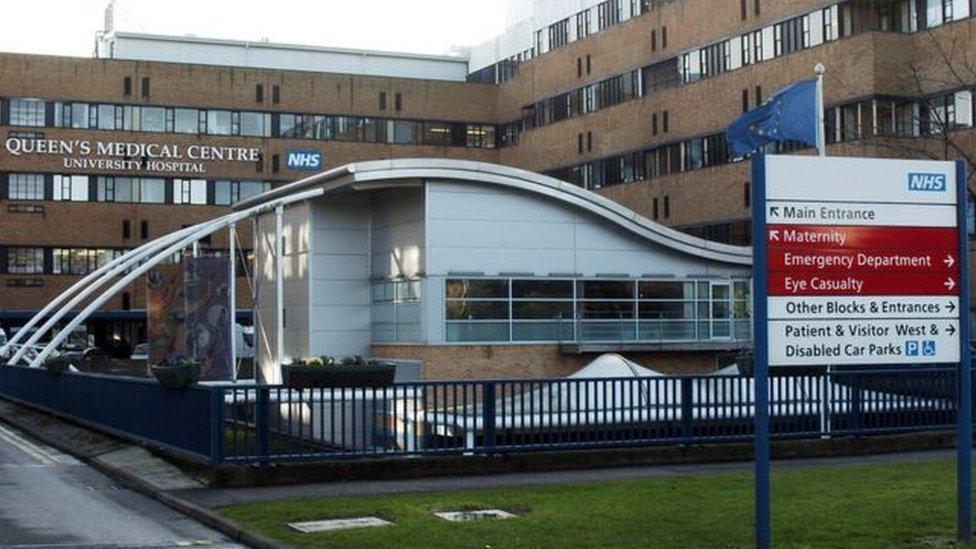
- Published18 April 2023
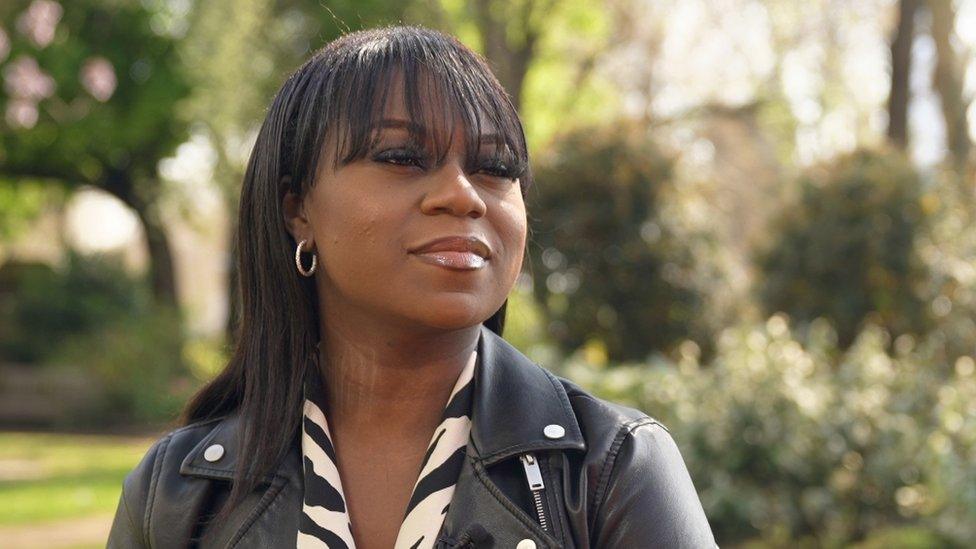
- Published2 February 2023
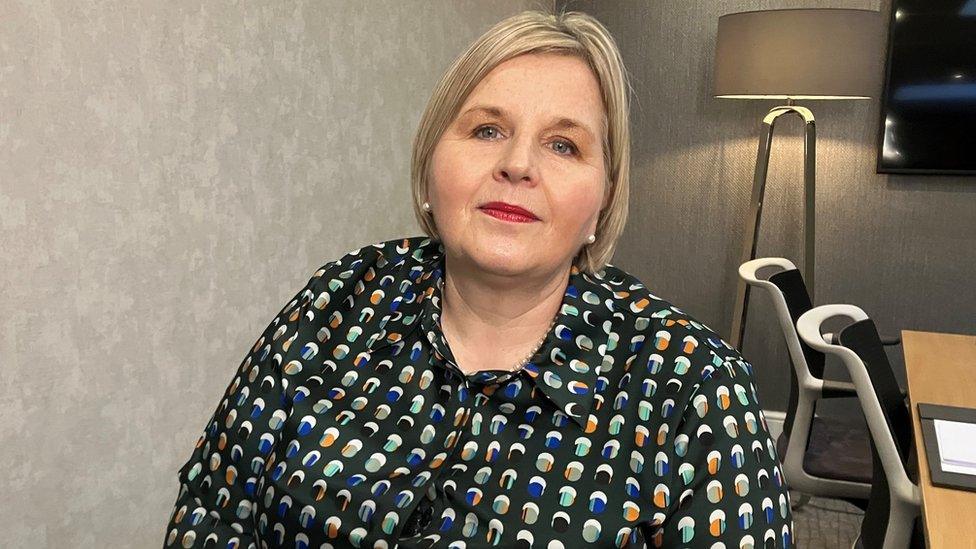
- Published1 September 2022
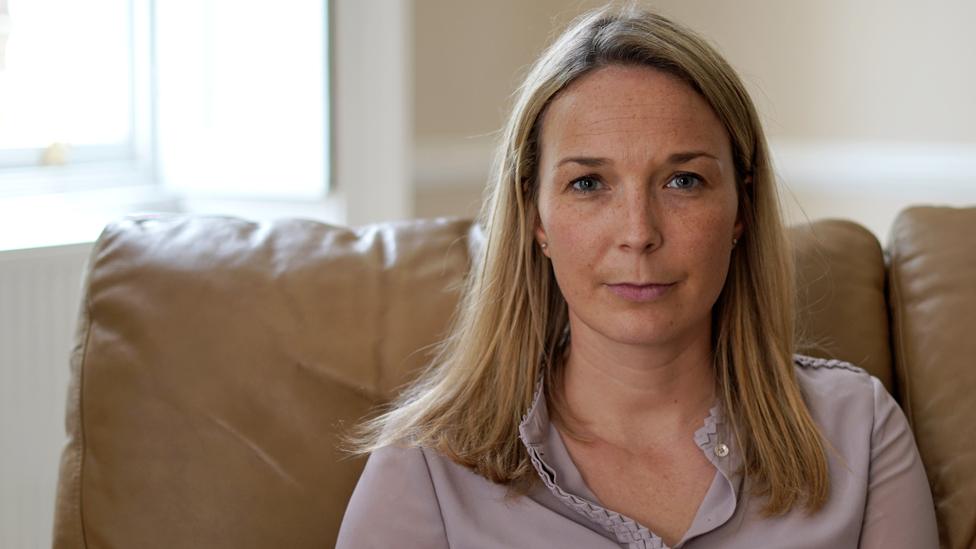
- Published22 October 2021
